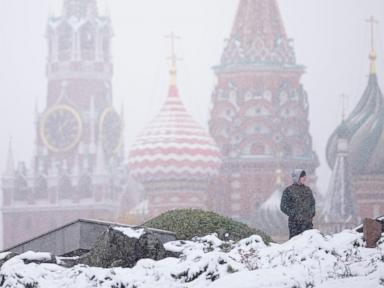ARTICLE AD BOX
MAJORCA officials are begging anti-tourist zealots to respect holidaying Brits as more protests are set to rock Spain.
The warning comes after demonstrating Barcelonans sprayed holidaymakers at diners with water pistols earlier this month.
 EPA
EPA Reuters
Reuters Getty
Getty
Foreign tourists in Majorca were also booed and jeered as they ate evening meals on terraces during a protest there on May 25.
They also occupied a beach with umbrellas covered in the slogan “Ocupem Les Nostres Platges”, which translates into: “We occupy our beaches”.
Now regional officials on the Balearic Islands have made it clear to the mob there must be no repeat of Barcelona and locals must show tourists “respect”.
Bizarrely, regional government spokesman Antoni Costa denied there were protests on the island and said people were already respectful.
He said: “But we have seen a certain type of behaviour in Barcelona which, as you can imagine, we didn’t like.
“We ask for the upmost respect for those who have decided not to demonstrate and urge those who do protest to do so peacefully and not interrupt other citizens and visitors.”
Demonstrators flocked to Majorcan beaches last month in yet another display of locals’ discontent with holidaymakers and mass tourism.
They were seen huddled together at the coastal resort of Colonia De Sant Jordi, east of the island’s capital, Palma.
A group called Mallorca Platja Tour – Majorca Beach Tour – had earlier campaigned online for locals to “occupy” the island’s beaches.
The group wrote on X: “Call for residents to fill the beaches of Mallorca as a protest against overcrowding.
“We invite all the residents who live near the beaches to go there to recover our beaches and enjoy them as before.”
Spain’s tourism minister condemned protesters who soaked tourists with water pistols during a protest on July 6 in Barcelona city centre.
Jordi Hereu, a former Barcelona mayor, described their actions as reprehensible and that they didn’t represent the country’s culture of hospitality.
He said: “I want to reaffirm the values of hospitality of Spain and the Spanish tourism model and one of its characteristics, which is security.”
 Graffiti protesting against touristsCanarian Weekly
Graffiti protesting against touristsCanarian WeeklySome hoteliers on the peninsular have said the protests will have left some holidaymakers thinking they are not welcome.
Gabriel Escarrer, President of non-profit group EXCELTUR, said recently: “It’s the worst thing that could happen.”
Organisers of this Sunday’s protest in Palma are already predicting it will be “historic.”
Originally people in all four of the Balearic Islands including Ibiza and Menorca were going to take to the streets of their respective capitals on the same day before those plans were scrapped in favour of separate but co-ordinated actions over the summer.
Organisers of the Barcelona protest ended up making a public apology for abuse dished out.
In April, thousands of anti-tourist protesters took to the streets in Tenerife and demanded a freeze on holidaymakers.
The anti-tourist hordes filled a square in the capital brandishing banners including some that read “You enjoy we suffer” in English.
More than 15,000 people waved Canary Islands’ flags and blew horns to make a deafening noise in capital Santa Cruz.
Protests also took place at the same time on other popular Canary islands including Lanzarote and Gran Canaria.
Campaigners have tried to distance themselves from anti-tourist graffiti which has appeared on walls and benches in and around southern Tenerife.
Anti-tourist measures sweeping hotspots

A WAVE of anti-tourist measures are being implemented across Europe to curb mass tourism in popular holiday hotspots.
Overcrowding has become the main problem in many sunny destinations, with authorities trying to find a solution to keep tourists and locals happy.
Officials have attempted to reduce the impact of holidaymakers by implementing additional taxes on tourists, or banning new hotels.
Earlier this year Venice became the first city in the world to charge an entry fee for holidaymakers after it started charging day-trippers €5 (£4.30) if visiting the historical Italian centre.
It was followed by an area in Barcelona which resorted to removing a well-used bus route from Apple and Google Maps to stop crowds of tourists from using the bus.
Meanwhile, San Sebastián in the north of Spain, limited the maximum number of people on guided visits to 25 to avoid congestion, noise, nuisance and overcrowding.
The city has already banned the construction of new hotels.
The Spanish government has allowed restaurants to charge customers more for sitting in the shade in Andalucia.
Benidorm has introduced time restrictions, as swimming in the sea between midnight and 7am could cost a whopping £1,000.
The Canary Islands are also considering adopting measures to regulate the number of visitors – and charge tourists a daily tax.
Greece has already enforced a tourist tax during the high season (from March to October) with visitors expected to pay from €1 (£0.86) to €4 (£3.45) per night, depending on the booked accommodation.
Officials in Santiago de Compostela in Galicia want to introduce a fee for travellers to remind people to be courteous during their trips.
 Rex
Rex Solarpix
Solarpix.png)
 4 months ago
5
4 months ago
5








 English (US)
English (US)